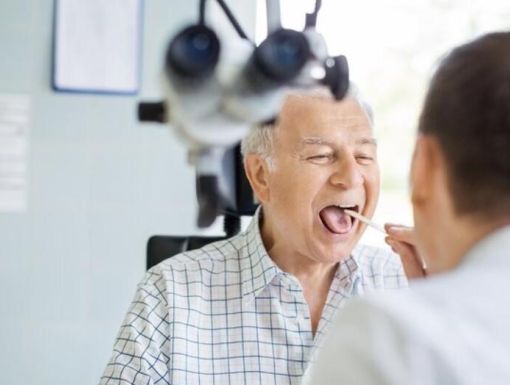
What Are Side Effects of Proton Pump Inhibitors (PPIs)?
Stomach acid is a watery fluid produced by the stomach lining that helps break down food, ease digestion and promote nutrient absorption. It also acts as your body’s first line of defense against bacterial infections that can enter through the mouth and airways.
While it serves important functions, stomach acid can also cause problems if you have a problem with the sphincter (hiatal hernia) or your stomach empties slower than normal. Acid imbalances can lead to various digestive issues, including acid reflux, a common condition affecting approximately 20% of adults in the United States, according to the American College of Gastroenterology.
The most common treatment for acid reflux is a class of drugs called proton pump inhibitors (PPIs). Introduced in the 1980s, PPIs are used to reduce stomach acid. Some examples of these medications are Prilosec OTC, Nexium and Prevacid.
If you are suffering from an ulcer in your stomach or intestines or have a precancerous condition known as Barrett’s esophagus, then you will likely need to be on these medications to help your body heal quickly and prevent further harm. However, doctors are often asked if there are risks from taking these medications long term.
Why do we have acid in the stomach?
Acid is important for many reasons to help your stomach and body function properly. It acts as your first line of defense against bacterial infections that try to enter your body through the mouth and airways. If you are taking a PPI over a long period of time, you may have less defenses against these kinds of infections. Stomach acid is also an important part of the process of breaking down and absorbing your food properly. People who take PPIs daily may be at increased risk for long term vitamin deficiencies, including iron and B12.
If you are currently taking a PPI, it is important to discuss with your healthcare provider if it is necessary for you to be on this medication long term or whether you may be able to get by with a different medication or safely stop taking them altogether. If you decide to stop taking these medications, it is best to slowly wean down over time.
What is acid reflux?
Acid reflux, also known as gastroesophageal reflux disease (GERD), occurs when the lower muscle of the esophagus malfunctions, allowing acid to move up into your esophagus. This backwash can inflame the lining of the esophagus.
Symptoms of acid reflux can include:
- A burning sensation in the chest, often called heartburn. Heartburn usually happens after eating and might be worse at night or while lying down.
- Backwash of food or sour liquid in the throat.
- Upper belly or chest pain.
- Chronic cough.
- Problems or pain while swallowing.
- A feeling of a lump in the throat.
- Loss of appetite.
Normally, the lower esophageal sphincter, the muscle that acts as a valve between your esophagus and stomach, relaxes to let food pass through. Ideally, the muscle should stay closed at other times to keep stomach contents from flowing back into your esophagus.
For people with acid reflux, this muscle weakens or relaxes when it shouldn’t, allowing stomach acid to escape into areas where it doesn’t belong.
When repeatedly exposed to stomach acid, the tissue in the esophagus can break down, which can lead to formation of an ulcer. The acid can also cause scar tissue to form in the esophagus, which can narrow path that food takes on its way to the stomach.
Acid reflux is considered chronic if you’ve had it at least twice a week for several weeks. When it becomes chronic, acid reflux is usually referred to as GERD.
What is the cause of Barrett’s esophagus?
Long-term acid reflux can also lead to a condition known as Barrett’s esophagus, a condition characterized by changes in the cellular structure of the esophagus. It has been associated with an increased risk of developing esophageal cancer.
Can Barrett’s esophagus go away?
Treatment of Barrett’s esophagus depends on its severity. Taking medication to reduce acid reflux is usually the first step. Doctors also might consider removing or destroying abnormal tissue with surgery or endoscopic procedures like radiofrequency ablation or cryotherapy.
What causes acid reflux and GERD?
Various conditions can cause a defect in the operation of the lower esophageal sphincter, which prompts acid reflux and GERD.
These include:
- A hiatal hernia. This is when the upper part of the stomach pushes up into the chest through a small opening in the diaphragm, the muscle that separates the abdomen from the chest.
- Smoking. Tobacco smoke relaxes the lower esophageal sphincter. Even exposure to second-hand smoke can cause the problem.
- Pregnancy. Pregnancy creates pressure in the abdomen, which can stretch and weaken diaphragm muscles that support the lower esophageal sphincter.
- Obesity. Like pregnancy, obesity increases the pressure in the abdomen.
- Diet
Which foods should you avoid if you have acid reflux or GERD?
People with these conditions should avoid fatty and fried foods, citrus fruits, tomato sauces, chocolate, caffeine, carbonated drinks and alcohol.
A balanced diet featuring vegetables, protein and non-citrus fruits is best for acid reflux sufferers.
Conclusion
Proton pump inhibitors, including Prilosec OTC, Nexium and Prevacid, can be helpful medications to treat acid reflux. But it is important to discuss with your doctor or healthcare provider whether you should use these medications long term or whether they recommend a different treatment.



